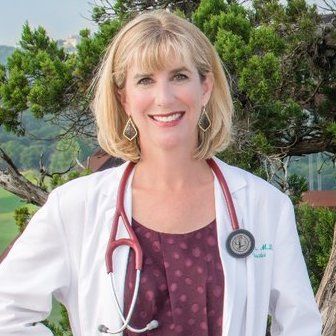Jill Grimes, MD: Collaborating in Medicine
The family medicine physician shares perspective on the differing healthcare teams, and what her practice could most benefit from.

Jill Grimes, MD
The modern healthcare team is not the one many physicians would have anticipated—nor is it, in some ways, the one they would have hoped for. But across specialties, experts have developed an understanding of how their practice could benefit with the care providers available.
It helps to have experience across multiple practices and focuses. Jill Grimes, MD, has had her share. Grimes, a Fellow with the American Academy of Family Physicians, a published author on family medicine, and an academic professional, recently hosted a #DocTalk #SoMeDocs collaborative tweet chat to discuss what modern healthcare collaboration looks like.
In an interview with HCPLive®, she shared further perspective on how differing specialty teams compare, which team members are the greatest benefit to her current practice, and what may still be lacking in the healthcare team.
HCPLive: What do you see to be the strong suits and weak points of private practice, multi-specialty groups, and academics?
Grimes: I honestly don't think one is better than the other. They're all different. I've experienced 2 of the 3. I'm in academic medicine peripherally, and I'm also a clinical instructor for University of Massachusetts Worcester Medical School. And obviously, I live in Texas, so it's not like I'm there teaching students, but I've touched down in that world as well.
The pros of private practice are that I learned to do it my way. It's the little things, like my mother making my patient gowns. It was all really fun. You get to reflect your personality. I had seasonal decorations. It was very me, and that helped my patients have a connection to me, and vice versa. That, to me, is a huge plus of private practice.
One of the downsides of private practice is that you have to run your own business, and you're so busy running your own business—and in my case, being a parent, a wife, and a child of parents who developed dementia—that there's not enough hours in the day to do everything. And, although I did my continuing medical education, it's not the same level of keeping up when you're the only one enforcing it on yourself, as it is when you've got other people looking at your chart.
Honestly, I didn't change my practice tremendously, but it does change your mindset a little bit, to be extra careful that you're not giving an outdated drug. There's subtle changes, things like that you might not be practicing the current standard.
The other downside of private practice is that you go in when you're sick. You have to go in when you're sick because you're the only one there. There's no backup physician.
I love the multi-group, specialty continuation of care for the patient, in terms of electronic medical records. It's seamless.
In academic medicine, I think when you've got students following you around, you have to be able to explain everything you're doing. And I think that's good for patient care, as well as your own thought processes. Younger people are excited to learn new stuff, and that keeps your enthusiasm going, and I think that's a big bump for academic medicine.
The biggest downside of academic medicine is the egos. This is true for institutional egos, as well as individuals. It's not only about would [a paper] be published, but where has the physician been published—a more prestigious journal, or whatever. It’s about what grants have they gotten lately.
HCPLive: Who is a team member you greatly depend on?
Grimes: In my situation, I can't say enough about mental health providers. That's something I did not have in private practice, obviously—so I could pick up the phone and say, 'This person needs to be seen right now,' and have that happen.
For me, in my current situation, that's the most valuable person I've ever had. That's huge kudos to the University of Texas for that when they're doing this new, innovative program that's screening everybody coming in, rather than waiting for kids to show up in crisis. So for me, that's the instrumental extra person.
HCPLive: If you could make up a position for your team that would greatly benefit you, what would it be? Who could do it?
Grimes: My answer is a substitute doctor—which sort of isn't the right term, but that was the best thing I could come up with. One of the things that I see—and honestly, this is completely gender biased—especially women physicians are often very upset that they are the only mom missing the hundredth day of kindergarten, or other little milestones where it's socially expected for a mom to be there.
I think it would go a long way to decreasing burnout in both males and females if they had the opportunity to take one day off a month for that reason, and they had someone covering their patients. Also, physicians working sick is a real problem.
We see physicians coming in sick all the time—dripping with sweat and fever, and they'll put on a mask and wash their hands, do their best to not be contagious. But they're sure as heck not taking care of themselves, and there's no way they're taking as good care of their patients that they possibly would if they were not so ill.
I'm 54. So, my age group in particular and older has the bias of the only bad thing about not working and being on call every night is missing half the good cases. There's a mentality of, 'I can power through it, I don't have to sleep, I don't have to take care of my body, but it's failing me. I’ve just got to power through it.' And then you get burned out.